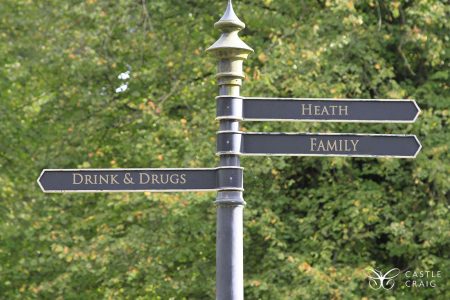The recent pandemic has changed the way we do a lot of things. The consumption of alcohol is one example. For long periods, going to the pub was impossible. At the same time, home drinking increased as people became more isolated and sometimes depressed. Two recent studies in the UK appear to indicate a change in long-term drinking habits and a rise in likely alcohol-related illnesses and deaths. Further strain on the health and social services is to be expected as a result. A government response is needed urgently.
The Pandemic Caused Alcohol Consumption to Spike
Covid 19 has a long reach and unforeseen consequences are still emerging. Our drinking behaviour seems to have changed due to the pandemic. Two reports have concluded serious negative effects on the UK’s alcoholism statistics, with knock-on consequences for health and social care and for the economy generally. The reports, by the Institute of Alcohol Studies (IOAS) and the University of Sheffield (UOS), together represent a wake-up call to which the government needs to respond.
These reports confirm the 2020 findings of the Royal College of Psychiatrists that high-risk drinking had nearly doubled in the first lockdown period.
At Castle Craig Hospital, we saw a record number of enquiries since the first lockdown and visits to the Castle Craig website doubled.
The Statistics for Drinking During the Pandemic
Both studies looked at drinking patterns during the pandemic and it is too early to say if these will continue in the post-pandemic period. Their main findings are:
- Heavy drinkers increased their alcohol intake, with the heaviest drinkers increasing the most, while moderate drinkers tended to decrease theirs.
- There was a 20% increase in alcohol-specific deaths in England in 2020 compared with 2019, and this trend persisted through 2021.
- Hospitalisations due to alcohol-related illness (indicating chronic alcohol misuse) rose by 10% during the pandemic. This increase was more pronounced among middle-aged adults (22% increase for those age 30 to 39).
- On the other hand, emergency alcohol-related admissions dropped by 9% (perhaps because pub closures meant less disorderly behaviour).
- The trend appears to continue in the period following the major lockdowns, but this is partly uncertain.
- The negative increases in these figures disproportionately fall on the least well-off, further widening the inequality gap.
Projected statistics for post-pandemic outcomes are based on recent actual numbers of alcohol-related hospital admissions and deaths. These predict a significant future increase in demand for alcohol-related health and social care as follows:
- Up to 147,892 additional cases of alcohol-related diseases by 2035 and up to 9,915 additional deaths.
- Additional cost to the NHS by 2035 is up to £1.2 billion.
- Even if real time statistics revert to a pattern similar to pre-pandemic behaviour, the effects of cost and strain on services from the Covid years would be significant and negative.
- In a worst-case scenario, there could be 25,000 additional deaths and a million extra hospital admissions within twenty years.
Dr Sadie Boniface of IOAS states: “This research should act as a ‘wake-up call’ to take alcohol harm seriously as part of recovery planning from the pandemic.” The cost of alcohol-related disease (source – The British Liver Trust 2019 Report)
- Alcohol-related liver disease accounts for 60% of all liver disease
- Around 7,700 people die from alcohol-related liver disease each year
- People who live in more deprived areas are up to six times more likely to die from alcohol-related liver disease than those who live in wealthier areas
- Alcohol costs the NHS £3.5bn every year.
- Alcohol costs the country £7.3bn in lost productivity every year.
The British Liver Trust (TBLT) is one of the UK’s main charities dealing with the medical consequences of alcohol misuse. Liver disease is the biggest cause of death in people aged between 35 and 49. They report that deaths from liver disease have increased by 400% since 1970. Calls to its helpline have increased significantly since the lockdown began, an indication of how many people have found their drinking has escalated out of control.
Professor Stephen Ryder, Medical Advisor to The British Liver Trust, says: “We hope that this report will highlight the scale of the problem that we are tackling and ensure more resources are committed to liver disease in the UK.”
TBLT states that the great majority of liver diseases stem from alcohol misuse, hepatitis (often related to drug use), and obesity and are therefore preventable.
Call for a New Approach
IOAS, UOS and TBLT all call on the Government to introduce policies to reduce harm from alcohol misuse urgently. The IOAS Report concludes:
‘These increases in alcohol harm and costs to society could be prevented as part of COVID-19 recovery planning. This will prevent avoidable ill-health and premature deaths, reduce the impact on the healthcare system, and save money. Evidence already exists on the health benefits and cost-effectiveness of various alcohol control policies, which can complement other ongoing policy agendas. They can offer return on investment, are low cost, or can generate revenue, contributing to the health, social and economic recovery from the pandemic.’
IOAS says that the Government must include policies to reduce alcohol harm in its coming White Paper, if it wants to stand any hope of tackling rising health inequality exacerbated by the pandemic.
the IOAS website makes recommendations to the government:
A new national alcohol strategy for England is needed, with the following evidence-based policies taking priority:
- Increase funding and resources for alcohol treatment and support, over and above what is promised in the new Drug Strategy, based upon anticipated need.
- Increase resources for primary and secondary prevention, such as screening and brief interventions.
- Capitalise on the opportunities presented by the new alcohol duty system commencing in 2023. The principle of a strength-based system is welcome, but duty rates should be consistent across different categories and must automatically increase in line with inflation.
- Introduce minimum unit pricing for alcohol. This would align England’s policy with Scotland and Wales.
- Add protecting and improving public health as a fifth objective of the alcohol licensing system in England, as it is in Scotland. This will enable health more broadly to be part of local decision-making on alcohol availability.
- Improve the regulatory approach to alcohol marketing to reduce exposure and influence among the vulnerable.
Contact Us Today
Your path to lasting recovery starts here
Government Response to Increased Drinking During the Pandemic
Although these recent reports make the urgency of the situation clear, it seems likely that the Government’s awaited Health Disparities White Paper may be delayed due to the current political uncertainty.
In Sheffield, Colin Angus, Senior Research Fellow who led the UOS study, said: “Even in our best-case scenario, where drinking behaviour returns to pre-pandemic levels in 2022, we estimate an additional 42,677 alcohol-attributable hospital admissions and 1,830 deaths over 20 years.”
The Government’s inertia in the light of so much alarming evidence is difficult to explain.
Prevention Measures
TBLT name ten key changes to address the UK’s liver disease crisis (much of liver disease is related to alcohol and drug misuse and over-eating):
- Every GP practice should have an agreed way of finding patients at risk
- Regular checks of the over 40’s via the NHS with automatic risk assessment and testing to identify those in danger
- Every primary care provider to have direct access to a best practice fibrosis assessment.
- Every NHS Trust to have alcohol care teams to support those who drink too much and to refer those who have alcohol related liver disease to specialised liver teams.
- Better access for people who are overweight to nutritional advice and weight management programmes
- Every hospital should have a designated liver lead who can refer a patient to a hepatologist or specialist centre if need be.
- More hepatology consultants are needed so every patient gets access to specialist support.
- Every liver disease patient should have access to a specialist nurse
- Improve awareness in A & E so those who are diagnosed in an emergency are immediately referred to a specialist
- Improve the regulatory approach to alcohol marketing to reduce exposure and influence among the vulnerable.
A National Alcohol Strategy
A workable alcohol strategy for the whole of the UK is needed sooner rather than later. Although timeous and appropriate treatment needs to be provided for and properly funded, there is a great deal that can be done by way of prevention. Failure to act simply makes the problem bigger, longer-lasting and more costly to solve.




